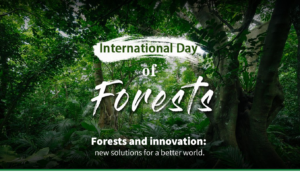Civil Society: The Watchdog of Zambia’s Environment
Environmental governance is a critical component of sustainable development, especially in a country like Zambia, where natural resources play a central role in the economy and the livelihoods of its people. At the heart of this governance are Civil Society Organisations (CSOs), which serve as both watchdogs and advocates, ensuring that environmental policies are not only implemented but also aligned with the broader goals of sustainability, equity, and justice.
At Conservation Advocate Zambia, we understand the power of law in driving systemic change. By leveraging legal frameworks, we actively combat climate change, preserve the environment, and promote sustainable livelihoods and development practices. However, our efforts would not be as impactful without the essential role played by civil society organisations in influencing environmental policy. This blog post explores the importance of CSOs in environmental governance, highlighting their contributions to policy formulation, public participation, and accountability.
Environmental Governance
Environmental governance refers to the processes and institutions through which decisions about the environment are made and enforced. Effective governance ensures that natural resources are managed sustainably, biodiversity is preserved, and the rights of communities are protected. In Zambia, the government, private sector, and civil society all play roles in this governance framework, but CSOs are particularly crucial due to their unique position as intermediaries between the state and the public.
Advocacy and Policy Influence
One of the primary roles of CSOs in environmental governance is advocacy. CSOs act as voices for communities and ecosystems that are often marginalised in policy discussions. Through research, public campaigns, and direct engagement with policymakers, these organisations bring critical issues to the forefront of the political agenda.
In Zambia, CSOs have been instrumental in shaping environmental policies that promote sustainable development. They have influenced legislation on issues ranging from deforestation and wildlife conservation to pollution control and climate change adaptation. For instance, CSOs have played a significant role in advocating for the protection of Zambia’s forests, which are under threat from illegal logging and unsustainable agricultural practices. By working closely with local communities, CSOs have been able to highlight the social and economic impacts of deforestation, thereby influencing the creation of more robust forest management policies.
Promoting Public Participation
Another vital function of CSOs is to facilitate public participation in environmental governance. The participation of local communities in decision-making processes is essential for ensuring that policies are responsive to the needs and realities of those most affected by environmental issues.
CSOs often serve as a bridge between the government and the public, helping to translate complex policy issues into accessible information that communities can engage with. In Zambia, where rural communities are particularly vulnerable to environmental degradation, CSOs have been successful in organising grassroots movements that demand greater transparency and inclusiveness in environmental decision-making.
For example, during consultations for Zambia’s National Climate Change Policy, CSOs played a crucial role in mobilising public input. They organised workshops and forums where community members could voice their concerns and contribute ideas. This ensured that the final policy was not just a top-down directive but a reflection of the diverse perspectives within the country.
Accountability and Oversight
Accountability is a cornerstone of good governance, and CSOs are essential in holding both the government and private sector accountable for their environmental commitments. Through monitoring and reporting, CSOs ensure that policies are implemented effectively and that those who violate environmental laws are held responsible.
In Zambia, where environmental laws are sometimes inadequately enforced, CSOs have stepped in to fill the gap. They conduct independent assessments of environmental impacts, track the implementation of environmental policies, and expose instances of non-compliance. For instance, CSOs have been pivotal in monitoring the environmental impacts of mining activities, ensuring that companies adhere to regulations designed to protect local ecosystems and communities.
At Conservation Advocates Zambia, we collaborate with other CSOs to utilise legal avenues to challenge environmental injustices. Through strategic litigation, we have been able to hold corporations and government bodies accountable for actions that harm the environment and violate the rights of communities. This legal advocacy not only brings justice in individual cases but also sets important precedents that strengthen environmental governance in the long term.
Building Resilience through Education and Capacity Building
In addition to advocacy and accountability, CSOs play a key role in building the capacity of communities to engage in environmental governance. Education and awareness-raising are critical components of this effort. By educating communities about their rights and the importance of sustainable practices, CSOs empower individuals to take an active role in protecting their environment.
In Zambia, many CSOs are involved in environmental education initiatives that target both children and adults. These programs often focus on sustainable agriculture, water conservation, and climate change adaptation. By equipping communities with the knowledge and skills they need to manage their natural resources sustainably, CSOs help build resilience against environmental challenges.
Civil society organisations are indispensable partners in the quest for sustainable development and environmental justice in Zambia. Their role in influencing policy, promoting public participation, ensuring accountability, and building community resilience cannot be overstated. At Conservation Advocate Zambia, we recognise that the power of the law, combined with the grassroots mobilisation and advocacy of CSOs, is a formidable force for driving systemic change. As we continue to combat climate change, preserve our natural heritage, and promote sustainable development, the collaboration between CSOs, the government, and the private sector will be more critical than ever.




